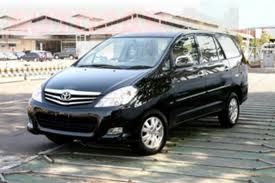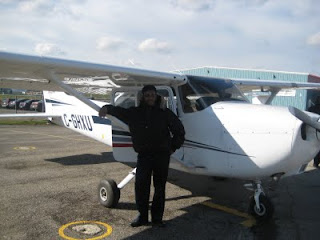2020
Bangladesh -- one makes a relaxed salute with the right hand.
Benin -- young men often snap fingers when shaking hands
Botswana -- people touch hands, like a handshake that doesn't include a grip, just lightly grazing palms and fingers. They ask each other: "How did you wake?" (It's interesting, in our family, we often ask, "How did you sleep?")
Cambodia -- here, one would put your hands together like "praying hands" holding them against your chest. The higher you hold your hands, the more respect you show.
Bhutan -- they ask, "Is your body well?"
Central African Republic -- good friends slap rights hands, then grab each other's middle finger using a thumb and middle finger, then "snap" the other person's finger. Sounds painful, but I'd love to have someone show me how it's done.
Gabon -- show respect by shaking a person's hand with both hands
Georgia (no, not the state) -- their word for hello literally means, "Let you win". I wonder if that works with politicians?
Ghana -- The people from the Twi tribe say "eh-ti-zain", which means "how is your soul perceiving the world". The positive response of "eyeh" means everything. So you are good when your soul is perceiving everything around you. (Emailed by Max Holland)
Greece -- back-slapping takes the place of shaking hands in many greetings.
Grenada -- sometimes friends might tap clenched fists
Guam -- there is a Chammoros tradition on Guam in which the Elder's right hand is clasped over the greeters right hand (like helping someone down a step), then the greeter bows and lifts Elder's hand to the forehead. Usually followed by a "Nyot" for the men and a "Nyorra" for the women. Sent to me by R/Jorge Concepcion Roberto, "born and raised, a proud Chamorro of Guahan."
Iceland -- their simple greeting means "Happy".
Jamaica -- "Waapun" one might say. It's a squished version of "What's happening?"
Mauritania -- some of the Moorish background might greet you with "On you no evil"
Mauritius -- they cut right to the chase in some villages here. Their hello literally means, "Speak!"
Micronesia -- the Yapese people greet with "It was good."
Maldova -- some men might greet a woman by kissing her hand while saying, "I kiss your hand." Why? What else would he be doing? Looking to nibble on ladyfingers? Sorry... gotta keep an open mind.
Mongolia -- rural people might exchange a pipe as a greeting
Mozambique -- northern people clap hands three times before saying hello
Maori -- some press noses together while closing their eyes. I wonder how often noses bump that way.
Niger -- the Kanouri people shake a fist at head level and call "Wooshay! Wooshay!" ("Hello! Hello!")
Niue -- here's a nice greeting: "Love be with you."
Oman -- after a handshake, men might add a kiss on the nose. (Bet THEY keep their eyes closed!)
Singapore -- greeters slide their palms together back toward their own chests, then end with the hand over heart. Smooth.
South Africa -- There is a predominant African way of greeting that goes as follows: Step One – ordinary shake (once), Step Two – single “upside-down” shake (once) – i.e. swivel your fingers towards the top of the other person’s hand until you are encircling his/her thumb, Step Three – back to the single ordinary shake. (Sent to me by Elinor Lowry.)
Swaziland -- they say, "I see you!" (What, no "peekaboo"?)
Syria -- children sometimes kiss the back of the hands of their parents or granparents
Taiwan -- the traditional greeting is, "Have you eaten?"
Tuvalu -- this is my favorite. Relatives press a face to a cheek of the other and sniff deeply. Mmmm. Old spice.
Zambia -- some greet each other by gently squeezing a thumb.
Zimbabawe -- the Shona people often show respect by doing a series of slow, rhythmic handclaps. The hands are cupped and positioned one on top of the other, not side by side as in applauding. Also, the Zimbabwean greeting is touching: A: Marara here (pronounced heh-reh)? B: Ndarara kana marara wo. (A: Did you sleep well? B: I slept well if you slept well.) Thanks again to Elinor Lowry for this!
Bangladesh -- one makes a relaxed salute with the right hand.
Benin -- young men often snap fingers when shaking hands
Botswana -- people touch hands, like a handshake that doesn't include a grip, just lightly grazing palms and fingers. They ask each other: "How did you wake?" (It's interesting, in our family, we often ask, "How did you sleep?")
Cambodia -- here, one would put your hands together like "praying hands" holding them against your chest. The higher you hold your hands, the more respect you show.
Bhutan -- they ask, "Is your body well?"
Central African Republic -- good friends slap rights hands, then grab each other's middle finger using a thumb and middle finger, then "snap" the other person's finger. Sounds painful, but I'd love to have someone show me how it's done.
Gabon -- show respect by shaking a person's hand with both hands
Georgia (no, not the state) -- their word for hello literally means, "Let you win". I wonder if that works with politicians?
Ghana -- The people from the Twi tribe say "eh-ti-zain", which means "how is your soul perceiving the world". The positive response of "eyeh" means everything. So you are good when your soul is perceiving everything around you. (Emailed by Max Holland)
Greece -- back-slapping takes the place of shaking hands in many greetings.
Grenada -- sometimes friends might tap clenched fists
Guam -- there is a Chammoros tradition on Guam in which the Elder's right hand is clasped over the greeters right hand (like helping someone down a step), then the greeter bows and lifts Elder's hand to the forehead. Usually followed by a "Nyot" for the men and a "Nyorra" for the women. Sent to me by R/Jorge Concepcion Roberto, "born and raised, a proud Chamorro of Guahan."
Iceland -- their simple greeting means "Happy".
Jamaica -- "Waapun" one might say. It's a squished version of "What's happening?"
Mauritania -- some of the Moorish background might greet you with "On you no evil"
Mauritius -- they cut right to the chase in some villages here. Their hello literally means, "Speak!"
Micronesia -- the Yapese people greet with "It was good."
Maldova -- some men might greet a woman by kissing her hand while saying, "I kiss your hand." Why? What else would he be doing? Looking to nibble on ladyfingers? Sorry... gotta keep an open mind.
Mongolia -- rural people might exchange a pipe as a greeting
Mozambique -- northern people clap hands three times before saying hello
Maori -- some press noses together while closing their eyes. I wonder how often noses bump that way.
Niger -- the Kanouri people shake a fist at head level and call "Wooshay! Wooshay!" ("Hello! Hello!")
Niue -- here's a nice greeting: "Love be with you."
Oman -- after a handshake, men might add a kiss on the nose. (Bet THEY keep their eyes closed!)
Singapore -- greeters slide their palms together back toward their own chests, then end with the hand over heart. Smooth.
South Africa -- There is a predominant African way of greeting that goes as follows: Step One – ordinary shake (once), Step Two – single “upside-down” shake (once) – i.e. swivel your fingers towards the top of the other person’s hand until you are encircling his/her thumb, Step Three – back to the single ordinary shake. (Sent to me by Elinor Lowry.)
Swaziland -- they say, "I see you!" (What, no "peekaboo"?)
Syria -- children sometimes kiss the back of the hands of their parents or granparents
WE PROVIDE LUXURY, DELUXE AND BUDGET CAR RENTAL SERVICES FOR INDORE AND OTHER TOURIST PLACE OF INDORE
Call
98 26 00 88 99
Taiwan -- the traditional greeting is, "Have you eaten?"
Tuvalu -- this is my favorite. Relatives press a face to a cheek of the other and sniff deeply. Mmmm. Old spice.
Zambia -- some greet each other by gently squeezing a thumb.
Zimbabawe -- the Shona people often show respect by doing a series of slow, rhythmic handclaps. The hands are cupped and positioned one on top of the other, not side by side as in applauding. Also, the Zimbabwean greeting is touching: A: Marara here (pronounced heh-reh)? B: Ndarara kana marara wo. (A: Did you sleep well? B: I slept well if you slept well.) Thanks again to Elinor Lowry for this!








No comments:
Post a Comment